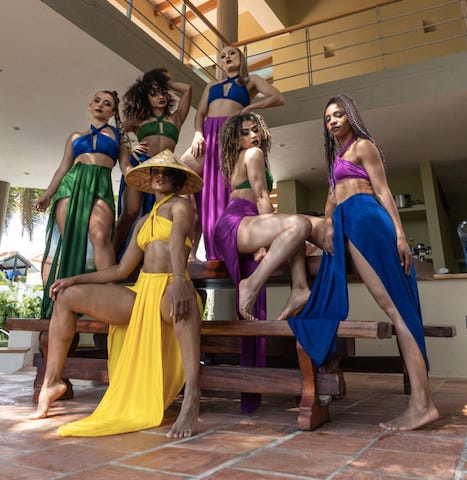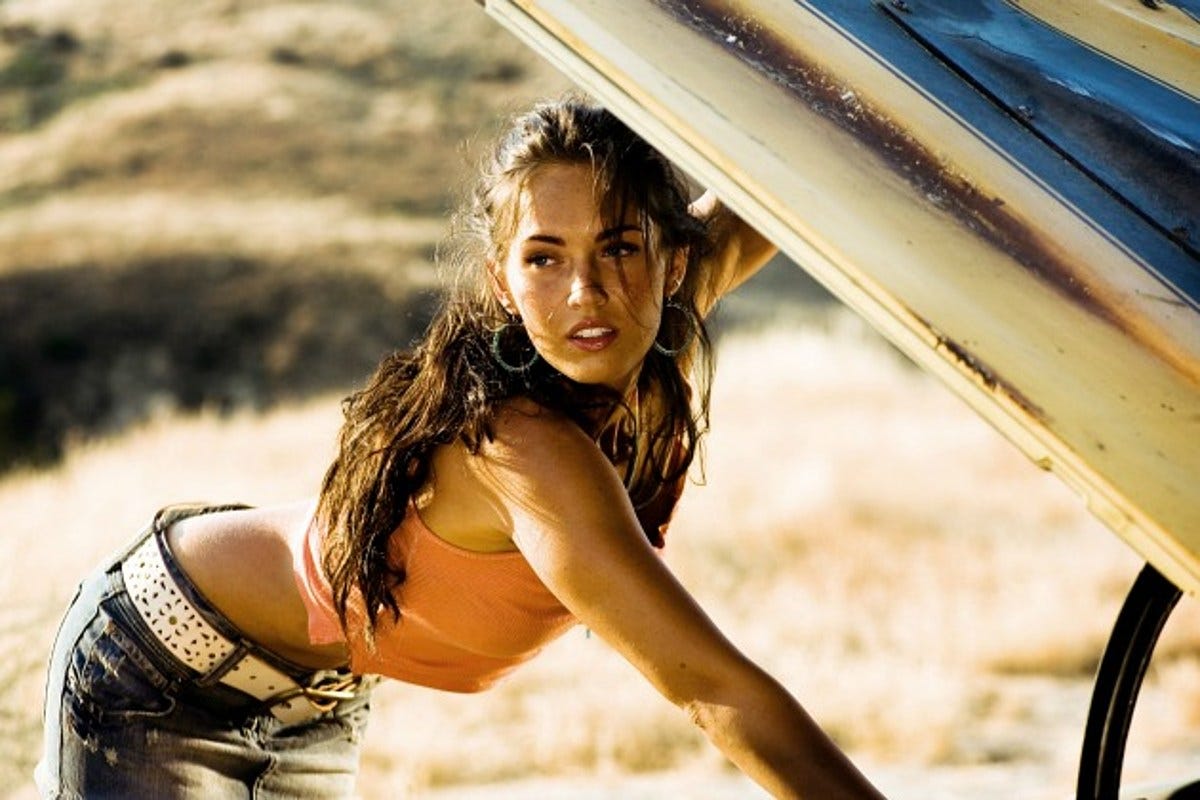Growing up, I remember eye rolling at countless scenes in movies and TV shows, where women were quite obviously objectified to please the male audience. However, without even realising, I was dressing myself through the eyes of the male gaze, just like they were.
The male gaze (a phrase coined by feminist film theorist, Laura Mulvey), is basically when women are represented in a way which is appealing to a straight, male audience. Female characters will often be dressed in sexy outfits as the camera will focus on their curves, to mirror the way that men view women in society.
I remember watching films like Transformers as a young girl and being in awe of Megan Fox in a crop top and short denim mini skirt. You can’t deny that she looks amazing, but when you know these female stars are being represented in such a way purely to feed the male gaze, it feels belittling rather than empowering. But with a society more often than not, built around male views, it’s hard to not base your worth around these ideals, even if subconsciously.
credit: entertainment.ie
The female gaze on the other hand, (a more uncommon but growing trope) is basically when women are presented from the eyes of other women rather than men. This often leads to a far less over sexualised view of female characters, focusing more on other traits than just their bodies.
One of the best examples in film of the male gaze vs the female gaze, is the difference between the representation of Harley Quinn in ‘Suicide Squad’ and ‘The Suicide Squad’. In the first Suicide Squad, she’s seen in a hyper sexualised way, wearing tiny shorts, with scenes of her undressing (which had no actual relevance to the plot).
However, in the second film, her style is far more realistic; although, she still looks sexy, her style reflects something a woman would actually be semi comfortable in whilst in a gun fight (I mean the idea of wearing booty shorts whilst in battle doesn’t seem that appealing to me).
The male vs. female gaze has been highly talked about as of recently. There’s been a huge trend going around on TikTok, focused on the differences between characters written by men and those written by women. Many users have been poking fun at the way men represent women, making ‘point of view’ videos waking up with a full face of makeup on, walking around in a silk robe, eating a salad and painting their nails, captioned ‘POV: I’m a woman written by a man.’
Representational differences like these may not seem like a big deal on a surface level, but as a society who are consuming media every day, it’s easy to feel pressure to live up to what we see.
In a July 2020 study by employment lawyers, Slater and Gordon, they found that 35% of women in the workplace had experienced at least one sexist demand since the March 2020 lockdown. Bosses had reportedly been asking many women to dress sexier and wear makeup for video calls, for reasons such as, ‘it would be more pleasing for new clients.’ This is just one example of how the male gaze has become an expectation of women in everyday life.
I remember when I was 16/17 (what I thought was my ‘girl boss’ era) for the first time, I started to actually care about what I looked like and what I wore. I was finally experimenting more with makeup and felt like I should be wearing clothes which complimented my figure.
I’m not lying when I say that I would spend hours on end, scrolling through clothing sites, trying to find the perfect dress before a house party that I felt would accentuate every curve to its fullest. I’d buy push up bras, order dresses in the smallest size they ran in and did daily ab workouts, just to replicate this ideal image of femininity the media pushed down my throat.
Looking back at photos from this time, with the huge eyelashes, tiny outfits and overly posed positioning, I do often think I resembled a wannabe Barbie doll. I have mixed emotions about this version of myself, as part of me appreciates how this was the first time I found confidence within the way I looked. However, the reasoning behind why I dressed the way I did, makes me lose a bit of respect for it, as this confidence stemmed from the fact I finally felt appealing to guys. Just like in film, I was representing myself from the perspective of a man and putting male validation before my own
.

The confidence movement seen on social media has been huge over the past couple of years. Although it’s done a lot of good in some ways, it hasn’t come without its issues. Often, the lines between wearing something empowering as a woman, or wearing something for male validation, can be blurred. I believe this is down to the fact that we’re being taught that wearing revealing outfits and flaunting our bodies is a power move (and don’t get me wrong there are many cases when it is).
The way I present myself now, will often still show off my figure, but the difference is that, unlike before, I don’t consider male opinion when it comes to the way I look. The issue is that nowadays we’re often taught as woman that we should reclaim our sexualities and wear things to show off our ‘sexiness.’ But when you’re young and impressionable, this can easily be mixed up with looking sexy for the male gaze, instead of ourselves. What I’m trying to say is, we should instead be taught to wear whatever WE want to wear, whether this is a tight dress or baggy jeans.
With the nature of fashion being so influential, it’s no surprise women have felt a pressure to dress for the male gaze, like we’
re so used to seeing in the media. However, a rule I’ve tried to implicate with my wardrobe is that, I only want to wear pieces which I truly love; and ever since I’ve never loved my style more.





